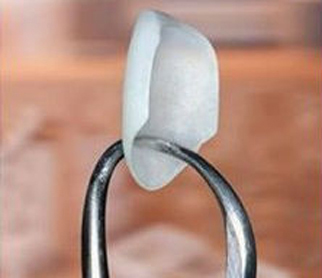For the past two years, I’ve been talking with my dentist about the possibility of getting porcelain veneers. I finally decided to move forward with my plans, so I had a long discussion with my dentist last week. One of my questions was about how long veneers last and if they ever need to be replaced. My dentist said that I could plan on returning to the office every three to four months because veneers fall off, and she will bond them back on. She said if I am careful about not eating crunchy foods, my veneers should last longer. I researched online over the weekend and didn’t see anything about veneers consistently popping off unless the dentist did something wrong.
My dentist’s estimate of how long veneers last is making me nervous. I already have a little dental anxiety. Sometimes I need nitrous oxide, but if I return to her office every few months because veneers pop off, I’ll end up a nitrous junkie. How frequently do veneers pop off? Thanks, Audriana
Audriana,
Shame on your dentist for telling you to expect your new veneers to pop off every few months.
It seems that your dentist is speaking from experience, which can mean several things:
- Your dentist uses cheap veneers
- She prepares teeth so aggressively that veneers won’t stay on
- Bonding techniques are not in your dentist’s skill set
The dental profession has a principle—the standard of care. Although cosmetic dentistry isn’t a recognized specialty, porcelain veneers must stay on—even if they look bad.
How Often Do Porcelain Veneers Fall Off?

Veneers should never fall off, and they should last at least ten years. Your dentist’s prediction about porcelain veneers’ longevity is a warning to find a cosmetic dentist who is skilled with veneers.
And you can eat whatever you want with veneers. But don’t use your veneers—or even your natural teeth—to bite pins, bottle caps, or other hard objects.
We encourage you to search online for cosmetic dentists, look at their patient reviews or smile gallery, and choose two dentists for a consultation. Ask about each dentist’s processes and how long you can expect your veneers to last. Get ready to switch to a new dentist for veneers. And you won’t have to worry about repeat appointments and needing sedation to get through them.
Plano, TX female dentist Dr. Miranda Lacy sponsors this post.